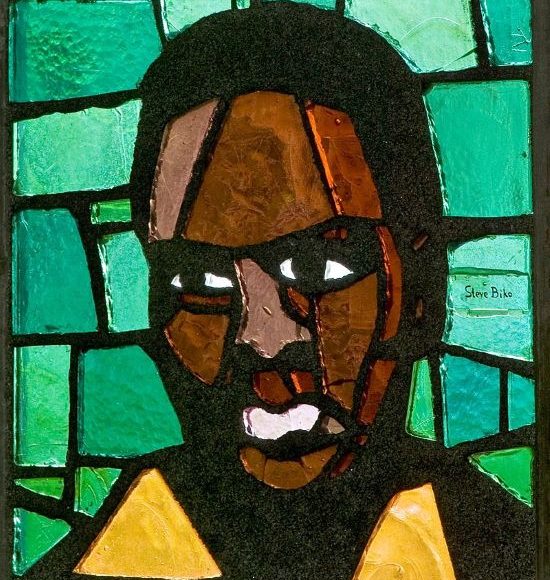August 18 in History
1977 – Steve Biko is arrested at a police roadblock under Terrorism Act No. 83 of 1967 in King William's Town, South Africa. He later dies from injuries sustained during the arrest, bringing attention to South Africa's apartheid policies
Bantu Stephen Biko (December 18, 1946 – September 12, 1977), is a South African anti-apartheid activist who was at the forefront of a grassroots anti-apartheid campaign known as the Black Consciousness Movement during the late 1960s and 1970s. His ideas were articulated in a series of articles published under the pseudonym Frank Talk.
Deemed a subversive threat by the South African Government, and placed under a banning order 1973, severely restricting his activities, Biko was arrested on this day in 1977 for violating the order and later beaten to death by state security officers. He was the twenty-first person to die in a South African prison in twelve months, and the forty-sixth political detainee to die during interrogation since the government introduced laws permitting imprisonment without trial in 1963.
Raised in a poor Xhosa family, Biko grew up in Ginsberg township in the Eastern Cape. In 1966, he began studying medicine at the University of Natal, where he joined the National Union of South African Students (NUSAS). Strongly opposed to the apartheid system of racial segregation and white-minority rule in South Africa, Biko developed the view that to avoid white domination, black people had to organize independently, and to this end he became a leading figure in the creation of the South African Students’ Organization (SASO) in 1968. Membership was open only to “blacks”, a term that Biko used in reference not just to Bantu-speaking Africans but also to Coloureds and Indians. He was careful to keep his movement independent of white liberals, but opposed anti-white hatred and had white friends.
Influenced by the Martinican philosopher Frantz Fanon and the African-American Black Power movement, Biko and his compatriots developed Black Consciousness as SASO’s official ideology. The movement campaigned for an end to apartheid and the transition of South Africa toward universal suffrage and a socialist economy. It organized Black Community Programs (BCPs) and focused on the psychological empowerment of black people. Biko believed that black people needed to rid themselves of any sense of racial inferiority, an idea he expressed by popularizing the slogan ‘black is beautiful’. In 1972, he was involved in founding the Black People’s Convention (BPC) to promote Black Consciousness ideas among the wider population. The government came to see Biko as a subversive threat and placed him under a banning order in 1973, severely restricting his activities. He remained politically active, helping organize BCPs such as a healthcare centre and a crèche in the Ginsberg area. During his ban he received repeated anonymous threats, and was detained by state security services on several occasions. Following his arrest in August 1977, Biko was beaten to death by state security officers.
Biko’s fame spread posthumously. He became the subject of numerous songs and works of art, while a 1978 biography by his friend Donald Woods formed the basis for the 1987 film ‘Cry Freedom’. During Biko’s life, the government alleged that he hated whites, various anti-apartheid activists accused him of sexism, and African racial nationalists criticized his united front with Coloureds and Indians. Nonetheless, Biko became one of the earliest icons of the movement against apartheid, and is regarded as a political martyr and the ‘”Father of Black Consciousness’. His political legacy remains a matter of contention.
-Wikipedia
Photo Caption – Steve Biko on a stained glass window in the Saint Anna Church in Heerlen, the Netherlands – Wikipedia



Comments are closed, but trackbacks and pingbacks are open.